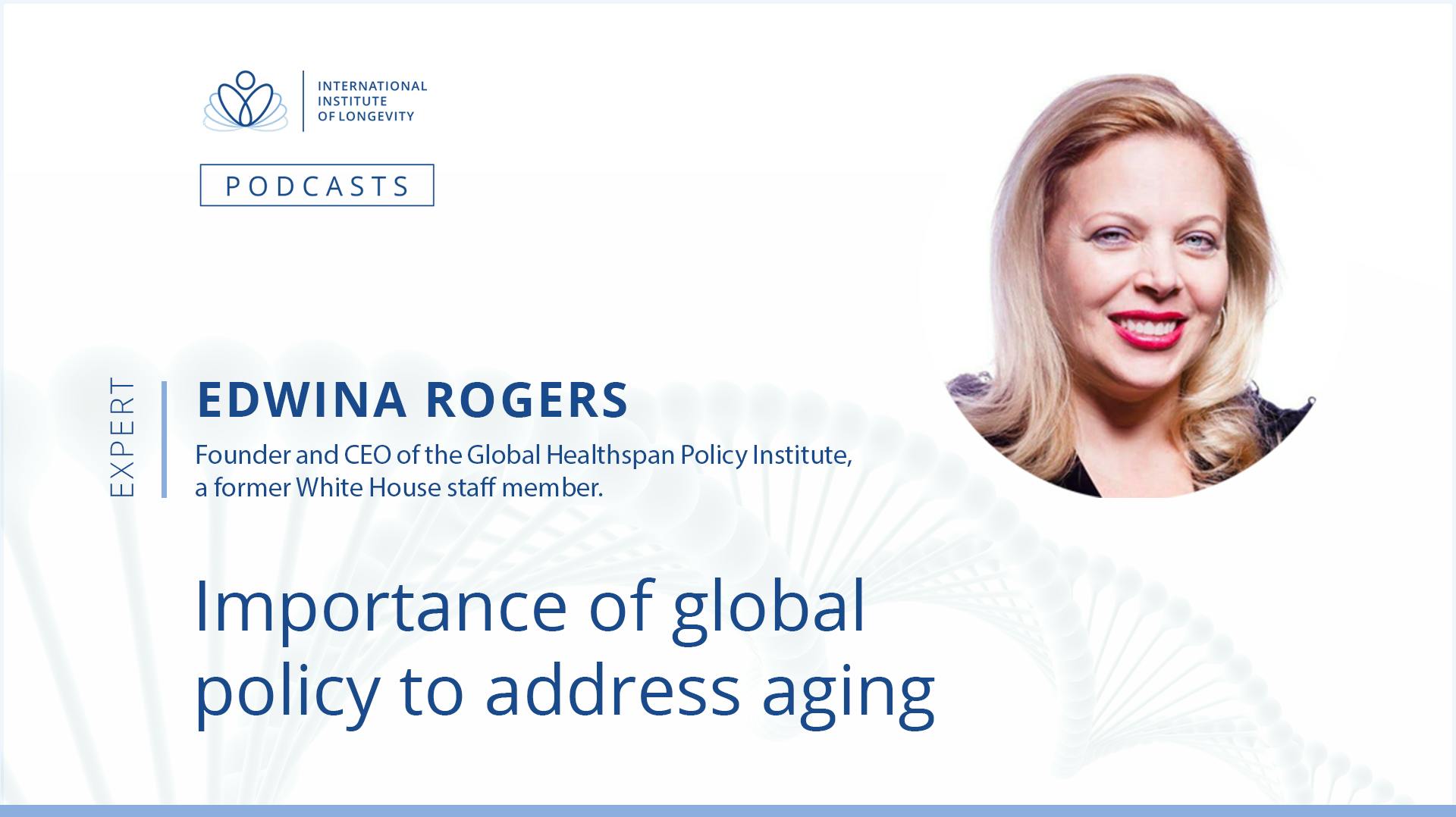
We are in the midst of a global demographic shift, where the elderly are outnumbering the young. By 2050, it's estimated that 20 percent of the world's population will be in the 60-years plus age bracket. We have an increasing number of centenarians and this group is expected to grow by approximately 800 percent by 2050. In other words, by then there will be over 4 million people above the age of a 100 living on the planet.
This will lead to many changes in the way we work, live and interact with others, and constrain budgetary policies, pension funds and healthcare systems. More importantly, if we prepare well, we can benefit enormously from this demographic shift.
Edwina Rogers has been a public policy expert in healthcare for more than 20 years and has worked for two presidents and four senators.
In this podcast Edwina discusses with us the following:
- How can we prepare for the demographic shift?
- Can we influence our aging process?
- What are the most interesting innovations in this area today?
- What is the role of nonprofit organizations in supporting this process?